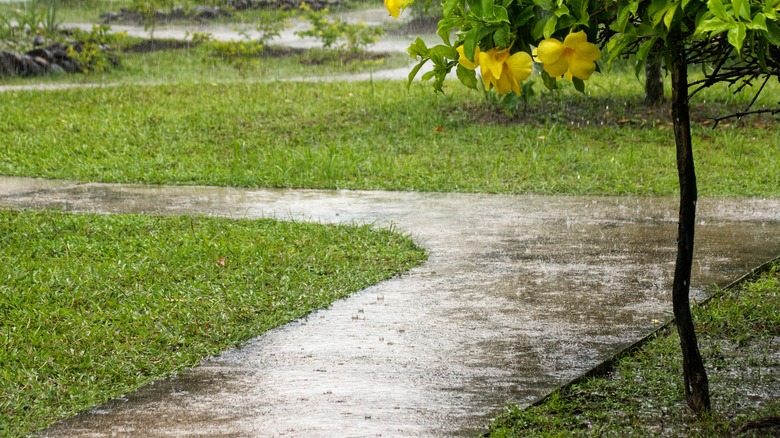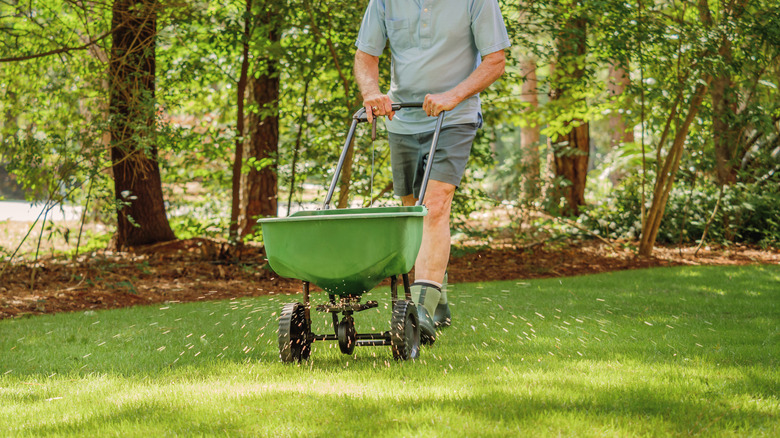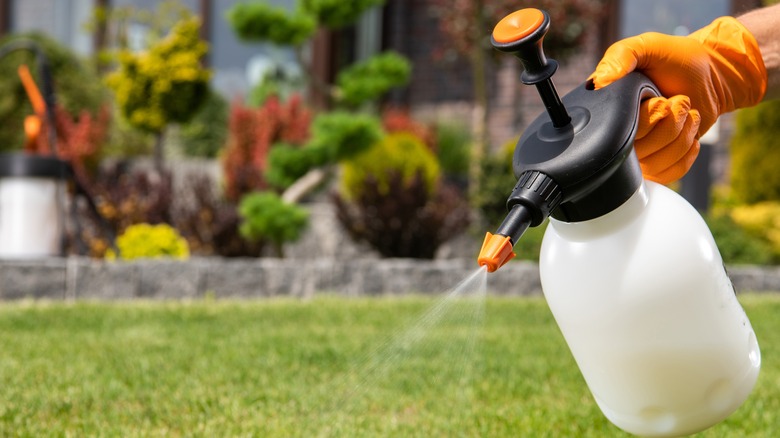When To Fertilize Your Lawn: Should You Do It Before Or After Rain?
As much as you would like to be in full command of what happens in your yard and garden, there are just some factors that are beyond your control. Rain, heat, drought, and even hail can descend on your garden at any time and throw all the plans you had out the window. It could be tempting to just go ahead with fertilizing your lawn right away after rain but applying fertilizer to wet grass might be an act in futility and cause more harm to your yard. Knowing when to water your lawn in the spring and the best time to use your fertilizer can ensure that your lawn starts the season on a good note.
Fertilizing your lawn after heavy rain is counterproductive because it's unlikely that the nutrients from the fertilizer will be absorbed by the saturated grass. Applying fertilizer on wet grass can put your grass at risk of nutrient burn from the fertilizer sitting on top of the soil. Fertilizer burn can also occur on very dry grass. For ideal application, it's recommended to water your lawn a few days before applying a fertilizer. This will ensure the lawn and soil aren't suffering from drought stress, but also that the grass blades have had time to dry to avoid burns. There are a few other factors to consider when deciding on application time.
How to fertilize your lawn
Plan ahead and try to work with rain, not against it. Allowing the rain to wet your soil a few days before fertilizer application has its benefits. Rain has a higher concentration of oxygen than the water that comes from your taps and sprinklers, which allows for better nutrient absorption in your soil. Wait a few days after rainfall so the grass is not wet, then apply your fertilizer. Opting for an organic solid, pellet fertilizer will help ensure that your fertilizer breaks down well over time, unlike a liquid fertilizer that needs to be left to dry and is more likely to be diluted and washed away by the rain. Fertilizers need to be activated with water about 24 hours after application, so if there is no rain in the forecast, water your lawn with your hose or sprinkler.
Another thing to keep in mind while deciding when to fertilize your lawn is how much fertilizer to use. Using too much fertilizer can cause the excess to run off and pollute the environment, so be sure to follow the package instructions. Also, consider the safety of your household and keep kids and pets off the lawn after application. Usually, 24 to 48 hours is recommended.
Things to consider when fertilizing your lawn
The type of fertilizer you use will determine how it will react to environmental factors. Slow-release fertilizers might be more costly, but you have the peace of mind of knowing you won't have to keep reapplying it. They also carry a reduced risk of burning your grass or harming your soil. If you're not looking to break the bank, fast-release fertilizers are a great option, but only if you're going to keep up with applications. However, they come with the risk of burning your grass if you use too much. To be on the safe side, try diluting your fertilizer and using it on a smaller patch on your lawn and see how it will react.
When taking care of your lawn, keep the soil and other plants that grow around it in mind as you go about your routine. Spring is usually a time when gardeners want to get proactive against weeds and other invasive plants, but using fertilizer at the same time as weed and feed is not recommended. Both products contain fertilizer, so you risk overfertilizing and burning your grass.


